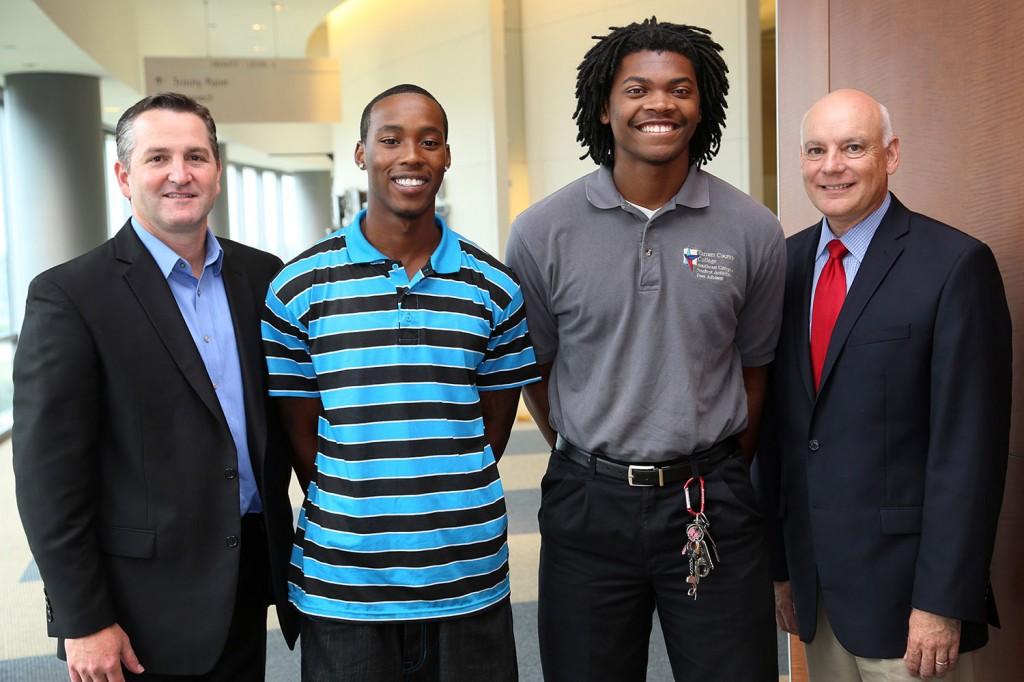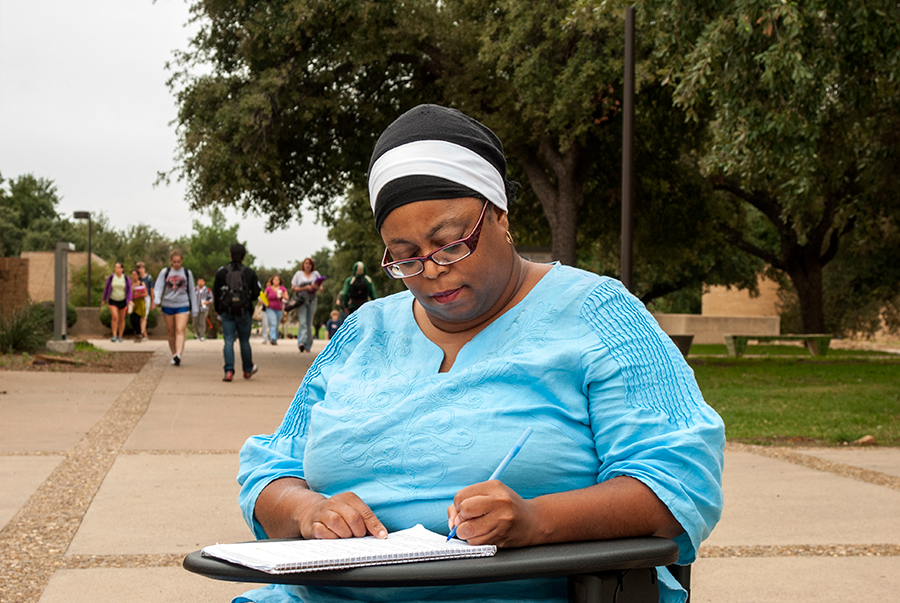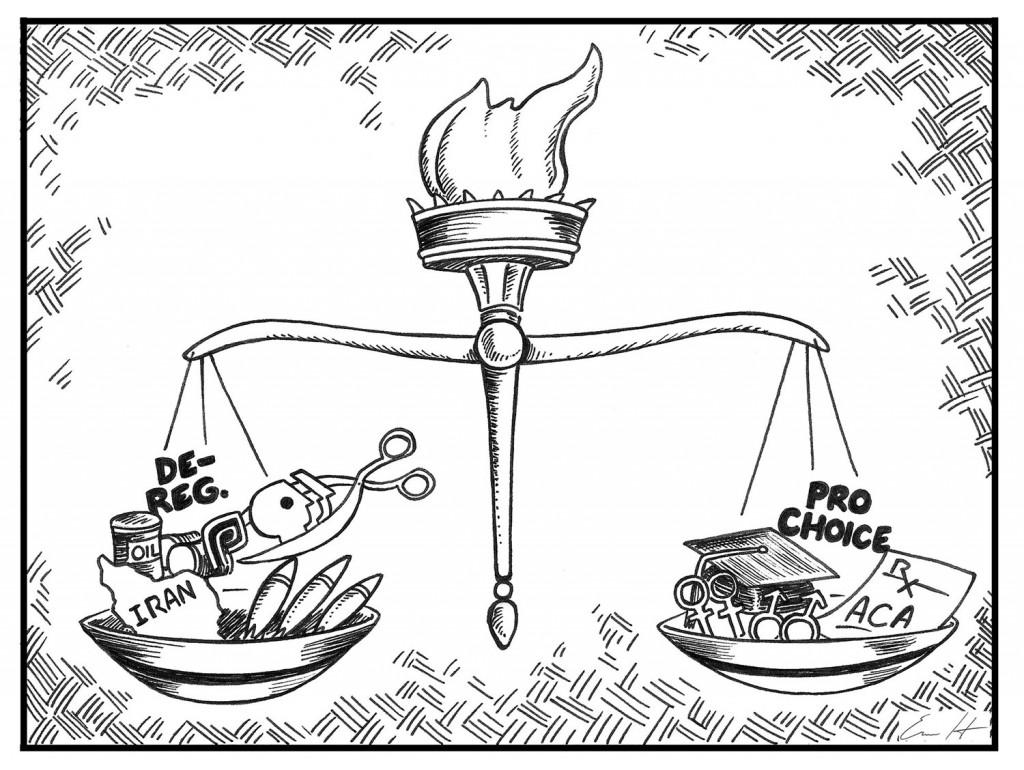By Shirlett Warren/editor-in-chief

— Ahmed Khalafalla
TR student Duncan Ballantyne does not plan to vote in November.
He said he remembers when candidates used to have good qualities and citizens were voting for the qualities they liked best. He doesn’t see that anymore.
“I’ve noticed that elections have turned from actually trying to find the person best suited for running the country to a fight over who’s not going to be worse than the other one at their job,” he said. “I want to hear how you’re going to help us, but you’re not doing that anymore, so I don’t care.”
Districtwide, hundreds of TCC students are registered to vote in the upcoming elections. Many are undecided, but few are indifferent.
The Collegian interviewed dozens of students on all five campuses. Some will be first-time voters. Others have voted for years. Whether liberal, conservative or independent, students are concerned that their issues are not being heard by the candidates.
Also, many students who balance work, school and family responsibilities said they have little time to learn about the candidates’ positions.
“I’m paying rent for the first time, juggling my school and work schedules,” said Brooke Hamilton, NE student and first-time registered voter. “I just haven’t had time to research issues.”

TR student J.J. Shofner said citizens should not vote unless they can take the time to research the candidates, and this year, he hasn’t had time to study and decide.
“I’ve never actually voted without studying the candidates first,” Shofner said. “There have been other times in the past where I have not voted for the same reason.”
NE government associate professor Larry Davis said he sees many students like Hamilton and Shofner, who are busy and young.
“Most of the students in my five classes are registered,” Davis said. “They all express apathy, but it’s not apathy. They just have better things to do.”
TR student Sage Bevan said she thinks younger citizens are the biggest market and could make a difference if they all came together and tried.
“I know most young voters these days say their vote doesn’t count, but there is a reason why they say that,” Bevan said.
Students like Kelsee Harp want their votes to count. Harp prepared for her first vote by studying where the candidates stand, watching the debates and following their campaigns.
“It’s my civic duty, and if I don’t vote, then I have no right to say one way or another how I feel,” Harp said.

NE student Ahmed Khalafalla comes from Sudan but has lived in the U.S. for seven months. Because of his residency, he has the right to vote and values the opportunity. He also sees voting as a way to make a difference.
“I never got the chance to vote back home because I moved around from Sudan to some places in the Middle East and back a few different times,” Khalafalla said. “I believe each vote counts. Each vote has in it its own purpose to change society.”
However, opportunity and information do not guarantee student certainty in supporting a particular candidate. Many are not excited about either presidential opponent because they simply don’t trust them.
“I’m still iffy,” said SE student Dominique Spencer.
South student Ronney Johnson also remains undecided.
“I really don’t know. I guess it depends on how many lies I can accept from the candidates,” he said.
Jon Feezel, a 60-year-old NE commercial real estate major, has voted in every presidential election since 1972 and seen his share of ups and downs with our government. He still plans to vote in this election regardless of what he calls a “stalemate” in the government.
“This country is supposed to stand for freedom — freedom of speech, religion and the freedom to vote for our elected officials,” Feezel said. “It’s one of the few ways we have left to practice these freedoms.”


























